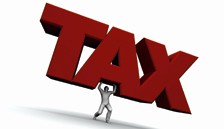Confusion over how dealer deposit contributions should be treated in relation to VAT is set to end.
HM Revenue & Customs (HMRC) has outlined in its Revenue & Customers Brief 7 (2018) that dealer deposit contributions (DDC) are not subject to VAT and it has invited companies to make a claim to recover overpaid output tax.
“I am really pleased with this announcement” said Michelle Malone, tax director at ASE Global.
“It confirms my long standing belief that VAT output tax was not due in the first instance”. Michelle added that whilst she was delighted with the announcement, the clients for whom she had already made claims were even more thrilled and that “the phone has not stopped ringing with other dealers making enquiries to see if they too are eligible for a VAT refund.”
Malone said there has been much confusion about the VAT treatment of dealer deposit contributions previously. Some dealerships have accounted for VAT on the gross sale price including the dealer deposit contribution, others have treated the dealer deposit contribution as a reduction in the taxable value of the vehicle.
ASE acted for a number of dealerships where the dealership has accounted for the VAT on the gross sale price making claims on their behalf to seek the recovery of the additional VAT. For every £1000 of dealership deposit £200 was potentially reclaimable, it said.
MHA MacIntyre Hudson has also been working with dealers to argue for refunds of overpaid VAT.
Glyn Edwards, VAT director, said: "HMRC has finally accepted the DDC is a discount and VAT is only due on the amounts actually received by the dealer, notwithstanding that a higher amount of VAT is shown on the invoice issued to the finance company.
"We have identified certain brands where this treatment has been prevalent, but treating DDC as cash has become more common across the industry. For example, some dealers have supported Motability sales in this way; others have used it as a marketing tool for second-hand sales.
"But all claims are limited to four years and so prompt action is essential."
And claims must be made as error corrections which means a requirement to notify HMRC separately rather than include an adjustment on a return.
"Those dealers who have always treated DDC as a discount are unaffected, but any who made a large internal correction without notifying HMRC may be exposed to attack," Edwards said.


















Login to comment
Comments
No comments have been made yet.